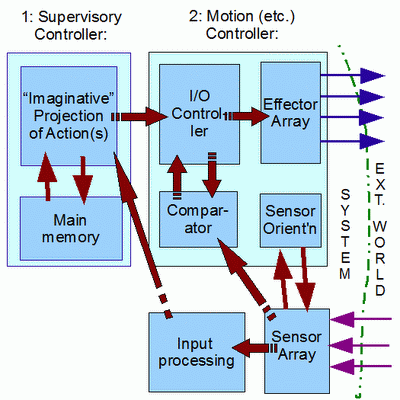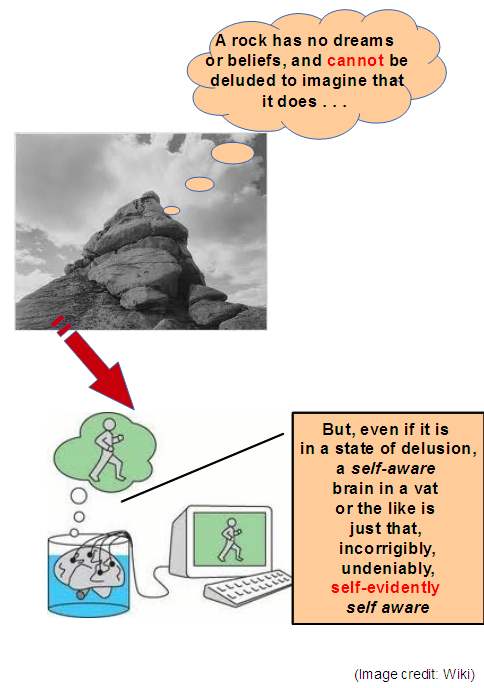While we’re on a roll on AI and its import at the hands of evolutionary materialistic scientism dressed in a lab coat, BA77 has linked a comic strip — see here (main site here; cf. twist on The Cave currently top of the heap) — that is at first funny then soberingly serious:
As in, where do you think these issues fit in:
And perhaps Engineer Derek Smith’s model has a few points to ponder as we think about the higher order, supervisory controller in the cybernetic loop:

Food for thought. END
PS: Could I put up for reflection the notion that the human soul is at the interface of spirit and body, including Brain and CNS?

